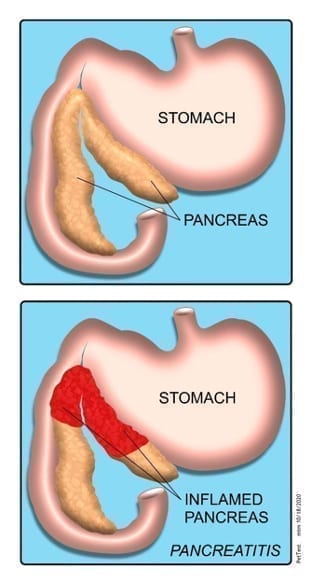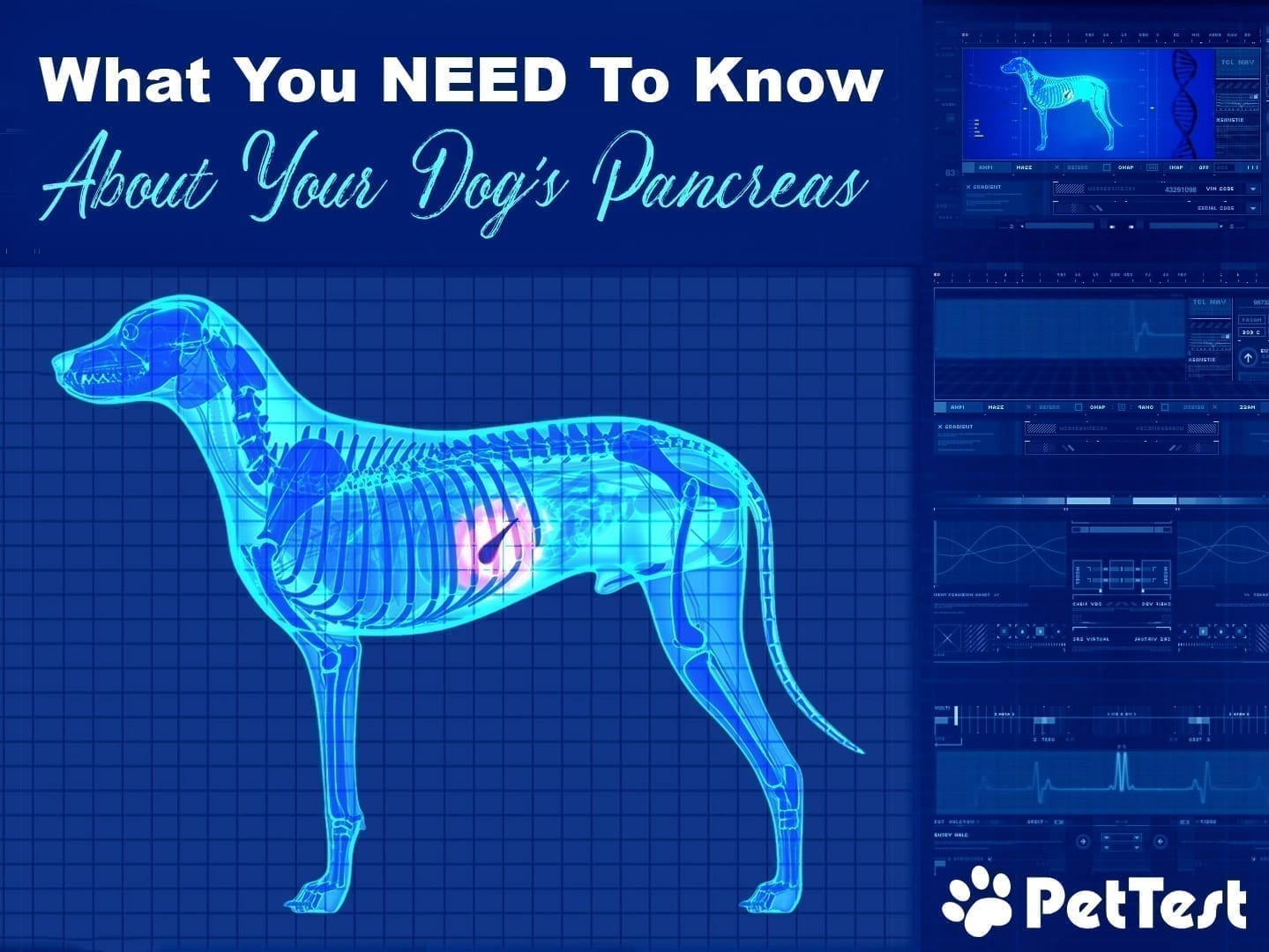Why is it so important to know what the functions of the pancreas are? Well, the pancreas is a very important organ that does several things for the body to run smoothly. This is especially true if your dog is diabetic. Let’s take a look at what it does.
ENDOCRINE CELLS
Endocrine cells produce hormones that regulate blood sugar levels; insulin and glucagon.
When blood glucose levels increase, the pancreas releases insulin to bring down glucose. When BG is too low, the pancreas releases glucagon into the bloodstream, which tells the liver to dump stored sugars into the bloodstream. This is an amazing emergency response that the body has!
When the endocrine portion of the pancreas does not work properly, it does not produce insulin, this type of Diabetes Mellitus is called Type 1 diabetes. Type 1 diabetics require insulin therapy to survive, which will necessitate home testing in between vet visits. Looking to get your dog the only painless diabetes monitoring system available? iHeartDogs readers can save 30% off the PetTest Painless Glucose Monitoring System with promo code GENTEEL at checkout at ShopPetTest.com.

EXOCRINE CELLS
These cells produce digestive enzymes that break down foods in the small intestine for nutrient absorption.
- Amylase enzymes break down starches.
- Protease enzymes break down proteins.
- Lipase enzymes break down fats.
When the pancreas is “faulty”, dogs are more susceptible to other illnesses like pancreatitis. Pancreatitis is inflammation of the pancreas due to digestive enzymes activating in the pancreas. Pancreatitis is a very painful illness that requires vet intervention, medications, and a low-fat diet.

Since processed fats (such as those found in many commercial dog foods) and high-fat human-grade foods tax the pancreas and can bring on bouts of pancreatitis, a low-fat diet is suggested for diabetic dogs. If your dog has pancreatitis, a diet of 10% maximum fat on a dry matter basis is recommended. If your dog has had pancreatitis in the past, you should feed under 12% fat on a dry matter basis, and for dogs that have chronic pancreatitis, a diet under 10% fat on a dry matter basis should be fed.
In summary, when wondering how you can help take of the work off of your dog’s pancreas: Low-fat meals, healthy low-fat, low-carb treats and digestive enzyme supplements help to take the load off. Happy, healthy pups are the goal! Check back each month for more content from our friends at PetTest, or explore their extensive blog series on canine diabetes today!
The post What You NEED to Know Now About Your Dog’s Pancreas appeared first on iHeartDogs.com.
via Whisker Therapy
